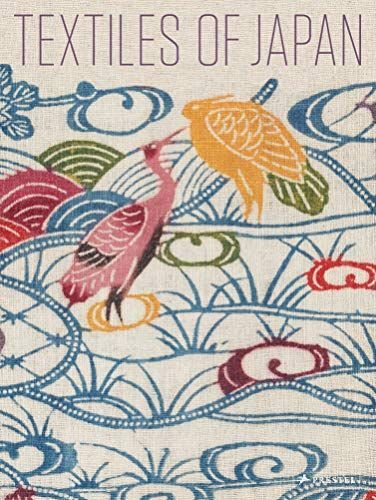
Textiles of Japan The Thomas Murray Collection
From rugged Japanese firemen's ceremonial robes and austere rural work-wear to colorful, delicately-patterned cotton kimonos, this lavishly illustrated volume explores Japan's rich tradition of textiles. Textiles are an eloquent form of cultural expression and of great importance in the daily life of a people, as well as in their rituals and ceremonies. The traditional clothing and fabrics featured in this book were made and used in the islands of the Japanese archipelago between the late 18th and the mid 20th century. The Thomas Murray collection featured in this book includes daily dress, work-wear, and festival garb and follows the Arts and Crafts philosophy of the Mingei Movement, which saw that modernization would leave behind traditional art forms such as the hand-made textiles used by country people, farmers, and fisherman. It presents subtly patterned cotton fabrics, often indigo dyed from the main islands of Honshu and Kyushu, along with garments of the more remote islands: the graphic bark cloth, nettle fiber, and fish skin robes of the aboriginal Ainu in Hokkaido and Sakhalin to the north, and the brilliantly colored cotton kimonos of Okinawa to the far south. Numerous examples of these fabrics, photographed in exquisite detail, offer insight into Japan's complex textile history as well as inspiration for today's designers and artists. This volume explores the range and artistry of the country's tradition of fiber arts and is an essential resource for anyone captivated by the Japanese aesthetic.